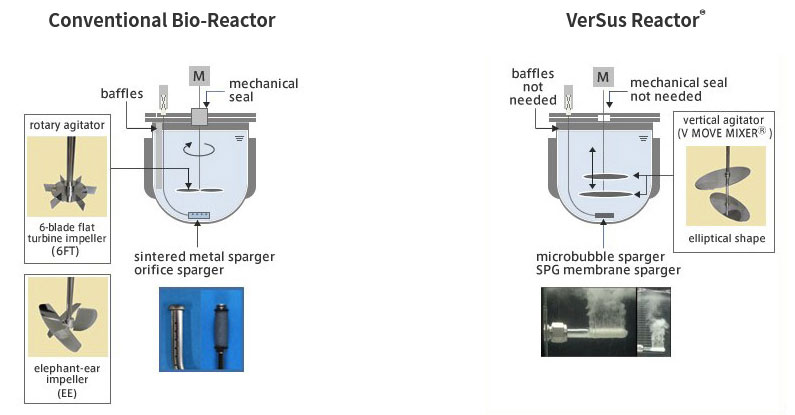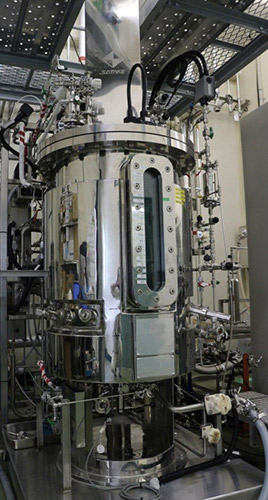For the Production of Biomedical Products to Combat Infectious Diseases
Large-scale Mammalian Cell Culture Technology/VerSus Reactor®
JGC HOLDINGS CORPORATION
| Publication date | May 09, 2018 (Posted on December 09, 2022) |
|---|---|
| Sector | Human Health |
Company Overview

Since its establishment in 1928, JGC CORPORATION has been engaged in the construction of a wide range of plants and facilities around the world, mainly in the oil and gas field including oil, natural gas, petrochemical, and LNG plants; extending to the energy infrastructure field including power plants and nonferrous metal plants; the industrial infrastructure field; the social infrastructure field including pharmaceutical plants, hospitals, and environmental facilities. The company is recognized as one of the world's leading engineering contractors.
Adaptation Initiatives
There are concerns that rising temperatures and changes in the spatiotemporal distribution of precipitation due to climate change will alter the distribution of habits for organisms that carry infectious diseases. The infectious diseases will spread into new regions and lead to an increase in the number of patients. Effective adaptation measures include the stable production and the establishment of a prompt supply system of vaccines for preventing infectious diseases against malaria, Japanese encephalitis, dengue fever, which has the possibility to spread by global warming.
Vaccines to prevent infectious diseases, which are bio-medical products, are vaccinated with attenuated or inactivated pathogens (antigens) into the body to produce antibodies in advance by utilizing the immune function of the human body to acquire immunity to overcome the infection by true pathogens. The most common method for production has been the egg-based method using growing chicken eggs and inoculating animals such as mice. However, the cell-based vaccine manufacturing process replaces the process of growing antigen in embryonated chicken eggs and animals with the process of growing culture cell. Since they can be artificially controlled, cultured cells will realize stable production, shorten the production period of effective vaccines, and contribute to the timely supply. Infectious diseases such as Japanese encephalitis and dengue fever that are transmitted by mosquitoes are expected to increase due to climate change, and vaccines for them have been produced by this cell-based method.
Since the establishment of animal cell culture facilities in our Research & Development Center in 1991, we have been developing a variety of elemental technologies for mammalian cell culture and collecting information on designs of culture bioreactors. Based on these knowledge, we have established a structure to optimally design and produce mammalian cell mass culture facilities using scale-up technology and computer simulation technology. Based on our technology accumulated over the years, we have completed a new type of cell culture bioreactor, the VerSus Reactor® (*1), jointly development with SATAKE MultiMix Corporation. Based on these achievements, it is possible to contribute to the prevention of the increase of infectious diseases by improving the early and stable manufacturing and manufacturing process of biopharmaceuticals to the region which needs new infectious disease countermeasures due to the influence of climate change.
- (*1) VerSus Reactor®
- A bioreactor with the technology combination of the "Shirasu Porous Glass Membrane (SPG Membrane) Sparger"( jointly developed by JGC and Miyazaki Prefectural Industrial Technology Center) which generates microbubbles to achieve a highly efficient and uniform supply of oxygen and the "VMP Reactor®"(developed by SATAKE MultiMix Corporation), a vertical motion mixing bioreactor with low shear/high-efficiency uniform mixing. The use of this reactor will minimize the damage to the delicate mammalian cells and increase productivity.



